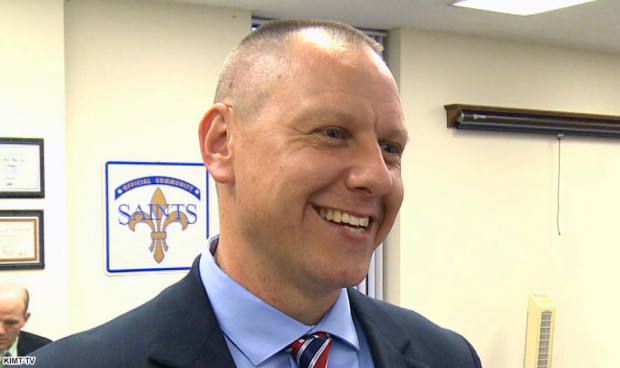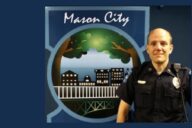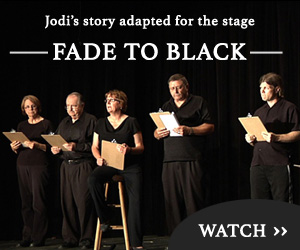In a recent telephone conversation with FindJodi’s Caroline Lowe, Mason City Police Chief Jeff Brinkley reflected on what it will take to solve the case and what he thinks that resolution would mean to the Mason City community.
Brinkley took over as chief in January 2016 after 20 years with the Ames, Iowa, Police Department.
He’s the fourth Mason City Police Chief since Jodi disappeared on her way to work at KIMT TV on June 27, 1995.
Here is an abridged version of the chief’s recent conversation with Caroline.
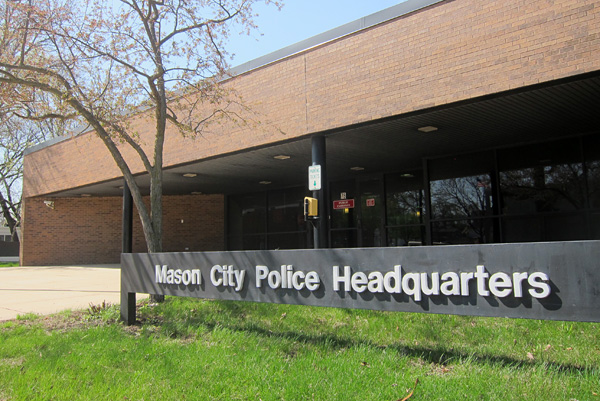
Image Source: North Iowa Today
FindJodi.com’s interview with Mason City Police Chief Jeff Brinkley
CL: Do you remember when you first heard about Jodi’s case, when you were in Ames?
JB: I remember hearing about it. I was working 3-11 at the time. It’s one of those cases you assume will go some period of time–a couple weeks, a couple months–but will get cleared.
That’s probably the view I had at the time. It was the kind of case—like capital cases or homicides—where you presume that a lot of law enforcement resources will go into it and it eventually will be cleared, in some time frame.
CL: Have you followed the various developments over the years?
JB: I grew up in Hampton, Iowa (just 29 miles from Mason City), so it’s something that people talked about. There’s also an unsolved homicide in Hampton, and you think about these cases from time to time. I’ve also been involved in a couple of other unsolved homicides that have taken a while to clear.
Sometimes, you just need that break, and I always thought that would come (in Jodi’s case). I knew the case hadn’t been cleared, but I didn’t know anything more about it prior to coming here. I hadn’t heard it was any closer to being cleared than it was early on.
CL: What’s it like coming in as chief with such a high-profile case on your docket?
JB: I’ve had a chance to talk with a couple of our investigators about it. The DCI, I know, still maintains a pretty expansive case file as well. Now it’s a matter of continuing to follow up on leads. We actually had one this week that we followed up on, but it didn’t pan out to be anything.
It’s important to keep the case in focus, to keep it on people’s minds — just being vigilant about what we have for evidence, being reasonable about when we ask for tests on things—when there’s DNA, when there are things that are useful.
I’ve got to tell you honestly, I’m optimistic we’ll find remains. I’m hoping we can catch a break and really, hopefully, blow this thing wide open and resolve it at some point.
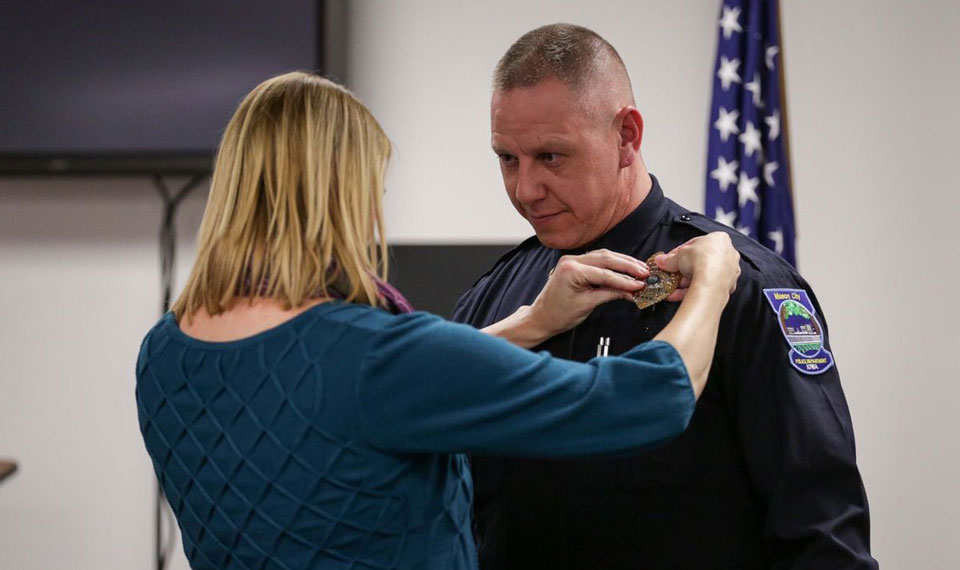
Mason City Police Chief Jeff Brinkley’s swearing in ceremony. (AARON THOMAS / Globe Gazette)
CL: What gives you that kind of optimism at this point?
JB: You know, being here, being in Iowa. When you think about the things hunters find every year when they go out. Jodi’s remains could provide the clues we need to put this case together. The remains may be out there somewhere where somebody just hasn’t stepped. And when someone finds them, we may get the evidence we need to put this thing together.
We can never give up hope about that. I would hope we’ve come far enough with forensic technology that finding her remains will give us exactly what we need to solve the case.
CL: We didn’t have the benefit of mitochondrial DNA, or the Internet, when Jodi was abducted.
JB: It’s a whole different world.
CL: Have you had a chance yet to look at the file? Is that something you would do as chief, or is that something you’d leave to the investigators?
JB: I intend to read it. I’d like to pour over the whole thing, and I’ve talked to our CID unit already. I just haven’t had a chance yet to really put my hands on it and take a look. You know, I’m selfishly hoping I could see something, at some point, that nobody else has noticed—that somehow I could sniff out the big lead that’s going to put this thing together. I don’t think that is going to happen, based on what I know, but I’m certainly interested as a police officer in trying to solve this thing. I will look at the file with a fresh set of eyes, talk with those investigators who already have seen it and bounce ideas around.
CL: What would it mean to the community to finally have the case solved?
JB: People would be ecstatic! There would be emotion and some level of closure and excitement that finally we were able to catch a break and identify the person responsible for the crime. Solving the case also would allow the community to finally get past it and not have to worry about it.
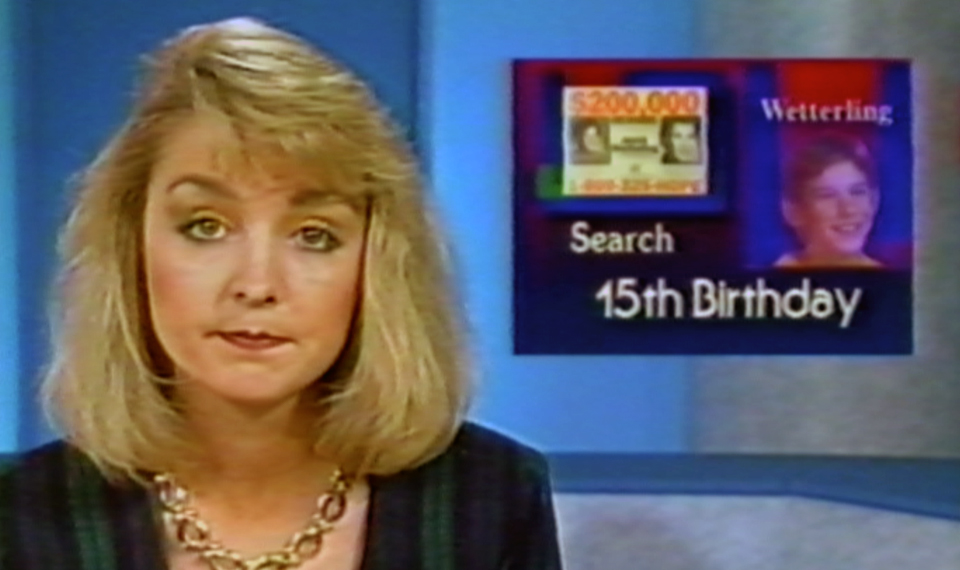
Jodi Huisentruit
CL: As someone coming in from the outside, have you found that Jodi’s case is still hanging over the community?
JB: Yes, it is. I’ve had about a half dozen questions about it since I’ve been here in the last two months. For a case of this age that doesn’t get everyday attention, that tells me the case is still on people’s minds. I’m happy about that from the standpoint that if people are thinking about it, they are more likely to contact us with some key bit of evidence that could get the case moving again.
CL: Have you seen situations where cold cases have been solved because relationships have changed among the people involved?
JB: Oh, certainly. You just never know when those kinds of things will happen, or you’ll find some pertinent news clippings, or a criminal has kept a trophy that sheds light on what happened. You just hope that somewhere along the line, we’ll become aware of something like that. It might be something that doesn’t seem significant to somebody else, but we’ll hear about it and it will make sense to us.
CL: Do you envision doing anything proactively, publicly, to try to help with Jodi’s case?
JB: I don’t know about that. We’ll do our part through our social media accounts and those kinds of things to keep this case out in front of the public. But it’s probably too early for me to speculate exactly what steps we’ll take at this point.
CL: How can our team help you?
JB: By keeping the story alive, keeping her memory alive, not forgetting, helping people stay vigilant. That helps us. It also helps to prevent future crimes when potential victims realize something like this can happen to them. If it increases their situational awareness, if it helps them recognize when there is some sort of danger or to trust that instinct when the hair on the back of their neck stands up, those are all good things. It’s worth doing for you and for us to stay in a partnership or to have a clearing house, if you want to call it that, for leads. Those are all good things and I hope that some day we can get it done.
CL: Anything more you would like to say?
JB: I just want to reassure that we are still working on the case. We still get calls, we are still at it, and we are hoping one day to get it done.
We’d like to hear what you, the reader, thinks of the current state of the Jodi Huisentruit investigation. Please list your comments below and let us know your thoughts and ideas on how Mason City Police Department should proceed to investigate the Jodi Huisentruit case.

